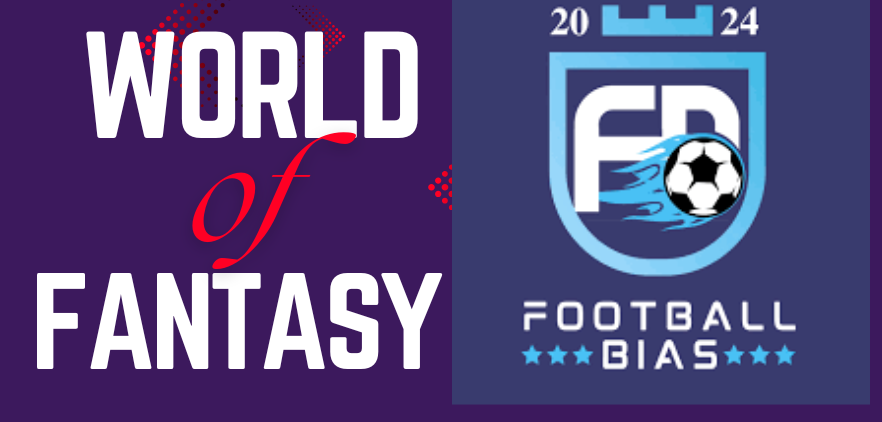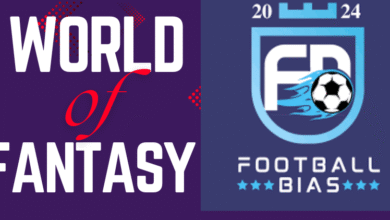How Fantasy Premier League Made the EPL the Most Watched League in the World
Differentials and Premiums

Fantasy Premier League has become one of the Premier League’s greatest marketing tools. What started as a small side attraction is now a global competition with millions of active players. It gives fans another reason to care, not just about their club, but about every match on the calendar.
It’s the perfect blend of entertainment and engagement. FPL doesn’t just make people watch football, it makes them study it. Every pass, save, goal and assist carries weight. And in doing so, it’s turned the Premier League from a league people follow to one they live through weekly decisions, substitutions, and captain picks.
At its core, FPL works because it’s simple and satisfying. You build a team, make decisions, and live with the results. It rewards planning but never loses its unpredictability, which is exactly what football is about
It’s competitive, but also communal. Friends, colleagues, and strangers all comparing points, arguing over picks, and celebrating differentials. It creates small rivalries inside the larger game. That weekly cycle of anticipation, frustration, and redemption keeps fans hooked. FPL turns casual followers into participants, and that’s where its real power lies
For most players, FPL starts as fun, but quickly becomes a genuine competition. The Premier League’s official prizes add an extra spark, but even private leagues raise the stakes. Cash rewards, bragging rights, or simple office supremacy, it all matters. The sense of control, the satisfaction of outsmarting rivals, or finishing top among thousands online gives the game purpose beyond fandom.
It mirrors the emotions of real football, strategy, luck, and heartbreak all rolled into one. Every transfer, every benching captaincy decision, carries tension. You win, you feel like a manager. You lose, you replay every mistake in your head. That emotional rhythm keeps millions coming back, season after season.
Before FPL, most neutral fans likely tuned in for the big games, the rivalries, the title deciders, the derbies. Now, every match has meaning. A Monday night fixture between mid-table sides can suddenly feel huge if your captain or differential is involved. Fans track assists from full-backs, clean sheets from promoted teams, and goals from strikers they’d perhaps never otherwise watch.
It’s a genius loop, the more people play, the more they watch; the more they watch, the more they care. FPL has made even the smallest fixtures part of the global conversation, turning the Premier League into a 380-game spectacle where no result feels irrelevant.
FPL has changed how fans talk and think about football. It has made statistics mainstream, expected goals, bonus points, fixture difficulty ratings, all part of everyday discussion. Casual supporters now think like analysts, breaking down trends and predicting performances. The debates go deeper too comparing form versus fixtures, premium assets versus budget gems.
It’s sharpened football conversations across social media, pubs, and podcasts. Fans now defend their opinions with numbers, not just emotions. FPL didn’t just make people more invested, it might have made them smarter. It’s a game that’s quietly raised the average fan’s football IQ.
Every FPL decision keeps fans plugged into the league. They visit official sites for stats, follow injury news, and watch post-match interviews to assess form. It’s constant engagement that stretches far beyond the 90 minutes.
This is where the Premier League’s advantage over other leagues becomes clear. La Liga or Serie A might have better technical football at times, but none have a fantasy ecosystem this integrated or global. FPL turns passive fans into active users, and that level of connection is priceless. It’s marketing without needing to market.
FPL thrives online. Every goal, red card, or benching instantly becomes content. Memes, threads, and highlight reels turn the smallest moments into viral talking points. Pages like FPLMate, FPLTips, and countless meme accounts have built full-time audiences from it. Even mainstream outlets now track FPL storylines because the demand is that high.
This constant online chatter keeps the Premier League relevant every single day of the week. The banter never stops, it’s part frustration, part entertainment, and it fuels a global community. What used to be casual post-match talk has evolved into a digital economy of humour, analysis, and obsession.
The crossover between fantasy and reality is now undeniable. Players and managers know the FPL world exists, and occasionally play into it. Haaland and Salah have joked about being “captain material,” and we know for a fact that Salah captains himself all the time. Club accounts also post updates with fantasy points in mind. Even official Premier League broadcasts reference FPL outcomes.
That interaction blurs the line between the virtual and the real. Fans aren’t just observers anymore, they’re emotionally invested in every goal, substitution, or clean sheet. And with that, the Premier League maintains something other leagues can’t match, a permanent, global conversation that almost never switches off.
FPL has become more than a game, it’s part of how fans experience football now. It keeps them watching, talking, and analysing long after full-time. It bridges the gap between just feeling like a fan and feeling like a manager, with stakes involved, turning emotion into strategy and strategy back into emotion.
For the Premier League, it’s been a masterstroke. Every player tracked, every fixture followed, every debate shared online all feeds into one thing: visibility. FPL didn’t just grow alongside the Premier League; it helped define its modern era. It made football even more personal because now, everyone has something riding on every match.





